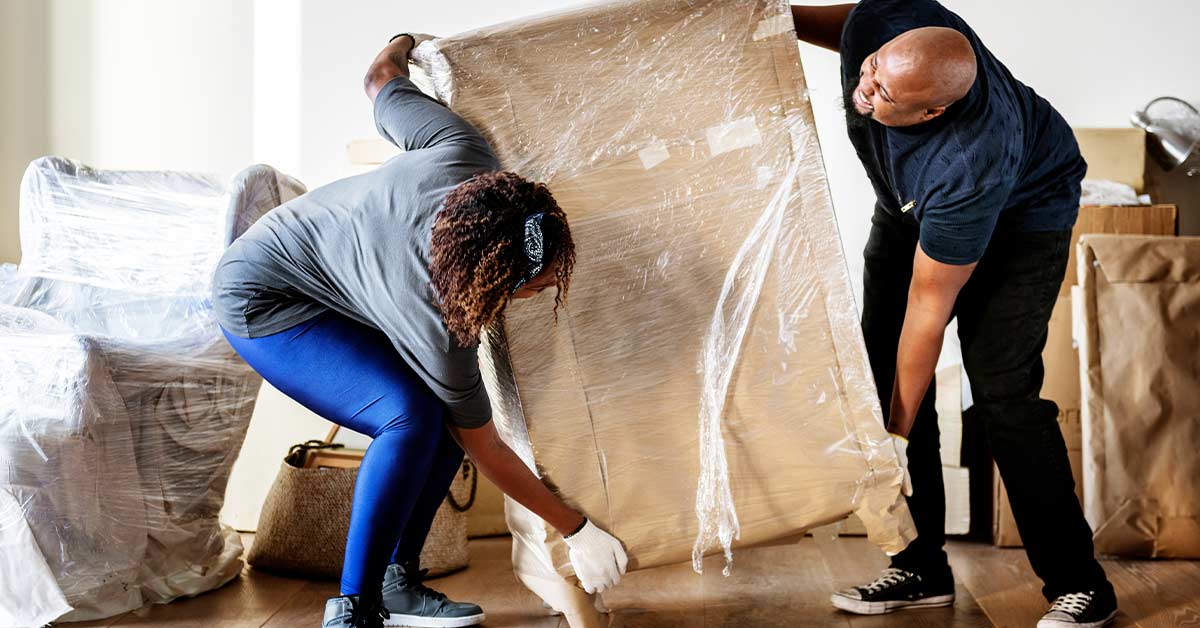Moving into a new home marks the beginning of an exciting journey, but the process itself can often be stressful and physically demanding. To ensure your move is smooth and injury-free, it’s essential to take proactive measures to prevent common moving-related injuries. Here are tips to help you safeguard your move and protect yourself and your belongings.
Understanding Common Moving Injuries
Before diving into prevention strategies, it’s important to understand the types of injuries commonly associated with moving:
- Musculoskeletal Injuries: These include strains, sprains, and fractures, often resulting from lifting heavy objects improperly or overexerting oneself.
- Cuts and Scrapes: Handling sharp objects or broken items during packing and unpacking can lead to cuts and scrapes.
- Back and Neck Injuries: Improper lifting techniques or sudden movements can strain the back and neck muscles.
- Trips and Falls: Uneven pathways, cluttered floors, or slippery surfaces can cause trips and falls, resulting in various injuries.
Prevention Strategies
Preparing Your Body
- Fitness and Strength Training: Engage in regular exercise routines to enhance muscle strength, endurance, and flexibility, reducing the risk of injuries during heavy lifting.
- Proper Nutrition: Maintain a balanced diet rich in lean proteins and stay hydrated to support muscle growth and recovery.
- Warm-Up Exercises: Before lifting heavy objects, warm up your muscles with light aerobic activities to prevent strains and sprains.
Packing Wisely
- Use Proper Packing Materials: Opt for sturdy boxes of uniform size to facilitate stacking and minimize the risk of overloading. Label boxes clearly to identify fragile items and handle them with care, especially if you plan on storing your belongings in a storage unit.
- Protective Gear: Wear gloves to shield your hands from cuts and abrasions while handling items. Utilize knee pads for added protection during kneeling tasks.
Prepping the Surroundings
- Clear Pathways: Remove obstacles and debris from walkways to prevent trips and falls. Trim outdoor vegetation that may obstruct movement during loading and unloading.
- Secure Tools and Equipment: Keep sharp objects like scissors and utility knives in designated packing areas to avoid accidental injuries. Attach slider pads to heavy furniture to ease transportation.
Moving Day Preparations
- Suitable Attire: Wear clothing that covers your skin and provides adequate protection. Sturdy shoes with good grip and ankle support are essential to prevent slips and falls.
- Protective Accessories: Equip yourself with knee pads and braces for added support during lifting tasks. Thick gloves offer protection against sharp edges and rough surfaces.
During the Move
- Proper Lifting Techniques: Bend your knees and lift with your legs rather than your back. Keep the load close to your body and avoid twisting motions to minimize strain.
- Use Moving Equipment: Employ dollies and hand trucks to transport heavy items safely and reduce physical exertion. Use padding supplies to secure fragile items during transit.
Stay Safe and Enjoy Your Move
By implementing these injury prevention strategies, you can safeguard your move and ensure a smooth transition to your new home. Remember to pace yourself, stay hydrated, and take breaks as needed to avoid overexertion. With careful preparation and attention to safety, you can protect both yourself and your belongings throughout the moving process.



